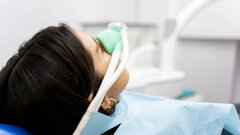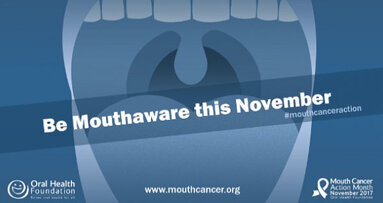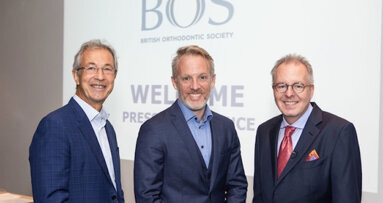LONDON, UK: The British Association of Plastic, Reconstructive and Aesthetic Surgeons (BAPRAS) and the Faculty of Dental Surgery (FDS) at the Royal College of Surgeons of England have released a joint statement warning against undergoing tongue splitting. This procedure, which involves a partial cleaving of the tongue to create a forked effect, can lead to infection, haemorrhage and nerve damage.
In their statement, the professional bodies caution that, owing to a recent ruling in the Court of Appeal, tongue splitting procedures offered by body modification practitioners are currently illegal in England and Wales. The court found that tongue splitting constitutes grievous bodily harm when performed for cosmetic reasons, irrespective of whether the patient’s consent has been obtained. The legal status of this procedure in the rest of the UK remains unclear, however, as it is not covered by any existing legislation.
Though there are no concrete numbers on the number of British people who have undergone tongue splitting, around 1.5 per cent of English adults are estimated to have a tongue piercing. BAPRAS and the FDS highlighted that oral piercings can lead to complications such as tooth fracture, gingival damage, infection and swelling, which can result in breathing difficulties.
“As dental surgeons, we've seen some of the horrific consequences of these procedures,” said Dr Selina Master, Junior Vice Dean of the FDS. “It’s so important that people realise they are putting themselves at serious risk of significant blood loss, infection, nerve damage and problems being able to breath or swallow.”
“In England and Wales, practitioners who offer tongue splitting are doing so illegally as the law currently stands. There is an urgent need for the law in other parts of the UK to be clarified. We would strongly advise people not to have oral piercings or tongue splits, but if they do, it is crucial they see their dentist on a regular basis so that the impact on their oral health can be closely monitored,” she continued.
“No reputable surgeon would undertake this procedure, as it carries high risks, both at the time of the procedure and long term, there are no medical reasons for doing it, and in England and Wales, and maybe elsewhere in the United Kingdom, it is probably illegal,” added Dr David Ward, President of BAPRAS.
Tags:
LONDON, England: Balanced nutrition is known to lower the risk of major non-communicable diseases, including cardiovascular disease, neurodegenerative ...
DUBLIN, Ireland: The Irish Dental Association (IDA) has urged people to prioritise their oral health and not to ignore dental pain, gingival infection or ...
LONDON, UK: Over two-thirds of NHS practices in England have had difficulties filling vacancies, a recent survey by the British Dental Association (BDA) has...
LONDON, UK: The General Dental Council (GDC) has warned dental practices not to answer requests recently sent by a computer forensics company pretending to ...
LONDON, England: Driven by the NHS dental crisis, an increasing number of UK patients seeking cheaper dental work overseas are encountering unexpected ...
LEEDS, England: As a crucial dimension of the overall oral health crisis continuing to rankle across the UK, children’s access to NHS dental care and ...
LONDON, England: One of the key promises of artificial intelligence-based (AI-based) tools in dentistry is the expediting of time-consuming tasks. The ...
LONDON, UK: General awareness of mouth cancer in the UK remains dangerously low, despite more than 7,500 people being diagnosed with mouth cancer annually. ...
GLASGOW, UK: At the recent British Orthodontic Conference in Glasgow, the British Orthodontic Society (BOS) and the Oral Health Foundation (OHF) have taken...
HAMILTON, Ontario, Canada: The link between periodontitis and cardiovascular disease is well established. However, most research in this area concerns older...
Live webinar
Tue. 24 February 2026
6:00 pm UTC (London)
Prof. Dr. Markus B. Hürzeler
Live webinar
Tue. 24 February 2026
8:00 pm UTC (London)
Prof. Dr. Marcel A. Wainwright DDS, PhD
Live webinar
Wed. 25 February 2026
4:00 pm UTC (London)
Prof. Dr. Daniel Edelhoff
Live webinar
Wed. 25 February 2026
6:00 pm UTC (London)
Live webinar
Thu. 26 February 2026
1:00 am UTC (London)
Live webinar
Tue. 3 March 2026
4:00 pm UTC (London)
Dr. Omar Lugo Cirujano Maxilofacial
Live webinar
Wed. 4 March 2026
1:00 am UTC (London)
Dr. Vasiliki Maseli DDS, MS, EdM



 Austria / Österreich
Austria / Österreich
 Bosnia and Herzegovina / Босна и Херцеговина
Bosnia and Herzegovina / Босна и Херцеговина
 Bulgaria / България
Bulgaria / България
 Croatia / Hrvatska
Croatia / Hrvatska
 Czech Republic & Slovakia / Česká republika & Slovensko
Czech Republic & Slovakia / Česká republika & Slovensko
 France / France
France / France
 Germany / Deutschland
Germany / Deutschland
 Greece / ΕΛΛΑΔΑ
Greece / ΕΛΛΑΔΑ
 Hungary / Hungary
Hungary / Hungary
 Italy / Italia
Italy / Italia
 Netherlands / Nederland
Netherlands / Nederland
 Nordic / Nordic
Nordic / Nordic
 Poland / Polska
Poland / Polska
 Portugal / Portugal
Portugal / Portugal
 Romania & Moldova / România & Moldova
Romania & Moldova / România & Moldova
 Slovenia / Slovenija
Slovenia / Slovenija
 Serbia & Montenegro / Србија и Црна Гора
Serbia & Montenegro / Србија и Црна Гора
 Spain / España
Spain / España
 Switzerland / Schweiz
Switzerland / Schweiz
 Turkey / Türkiye
Turkey / Türkiye
 UK & Ireland / UK & Ireland
UK & Ireland / UK & Ireland
 International / International
International / International
 Brazil / Brasil
Brazil / Brasil
 Canada / Canada
Canada / Canada
 Latin America / Latinoamérica
Latin America / Latinoamérica
 USA / USA
USA / USA
 China / 中国
China / 中国
 India / भारत गणराज्य
India / भारत गणराज्य
 Pakistan / Pākistān
Pakistan / Pākistān
 Vietnam / Việt Nam
Vietnam / Việt Nam
 ASEAN / ASEAN
ASEAN / ASEAN
 Israel / מְדִינַת יִשְׂרָאֵל
Israel / מְדִינַת יִשְׂרָאֵל
 Algeria, Morocco & Tunisia / الجزائر والمغرب وتونس
Algeria, Morocco & Tunisia / الجزائر والمغرب وتونس
 Middle East / Middle East
Middle East / Middle East

















































